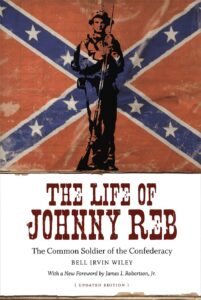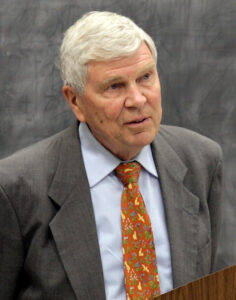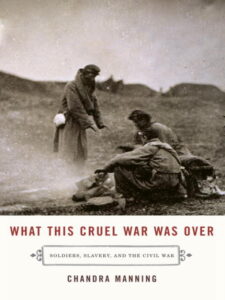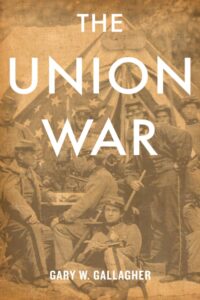How Much Did Soldiers Think About Slavery?
How much did Civil War soldiers think about slavery? Like many questions in history, it is probably one to which we will never know the full answer—but nonetheless a question worth asking. Since Bell Irvin Wiley’s publishing of The Life of Johnny Reb in 1943, and its successor The Life of Billy Yank in 1952, historians have been fascinated with the role that common soldiers played in the American Civil War. Renowned scholars like James McPherson and Gary Gallagher have chimed in on the conversation as well, questioning to what extent the soldiers of both North and South pondered and discussed the issue of slavery.
After decades of historical preoccupation with the war’s battles, campaigns, and leaders, Bell Irvin Wiley’s The Life of Johnny Reb: The Common Soldier of the Confederacy attempted to “give the man of the ranks […] something of his rightful measure of consideration.”[1] Wiley argues that, until the publication of his work, “the doings of common soldiers have usually served as a hazily sketched backdrop for dramas featuring campaigns and leaders.”[2] His book, along with its companion piece The Life of Billy Yank: The Common Soldier of the Union, concludes that the motivations of Union and Confederate soldiers “were far more alike than not.”[3]

Wiley downplays the importance of slavery in the motivations of both Northern and Southern soldiers to enlist, instead focusing on “love of country and hatred of those who seemed bent on destroying its institutions” as common factors.[4] He acknowledges occurrences in which Northern soldiers embraced abolition after witnessing slavery in the South firsthand but also complicates this notion by suggesting other Union soldiers found slavery’s cruelties to be greatly exaggerated by abolitionists.[5] “There can be no doubt that many faltered in their opposition to slavery and a few more converted to its defense,” Wiley asserts in his The Life of Billy Yank.[6]
James McPherson’s monograph For Cause and Comrades: Why Men Fought in the Civil War contends Wiley’s argument that “it seems doubtful that that one soldier in ten at any time during the conflict had any real interest in emancipation.”[7] While McPherson agrees with Wiley that very few Northern soldiers were interested in emancipation exclusively, many Union troops saw the abolition of slavery as “inseparably linked to the goal of preserving the Union.”[8] McPherson argues that Northern troops became “agents of emancipation,” but asserts that support for abolition in the Union army grew only out of necessity. “The attitudes of a good many soldiers on this matter were more pragmatic than altruistic,” he argues. “They understood that every slave laborer who emancipated himself by coming into Union lines weakened the Confederate war effort.”[9]

Chandra Manning’s provocative work, What This Cruel War Was Over: Soldiers, Slavery, and the Civil War, enters this decades-long discourse over the common soldier’s relationship to the “peculiar institution” during one of the nation’s greatest crucibles. Her book reiterates the importance of what motivated common soldiers but also shifts the focus of this discussion to the exclusivity of slavery.
Manning’s work largely challenges previous scholarship on common soldiers’ relationship to slavery. By focusing solely on the issue of slavery, she reveals that Union soldiers began to support emancipation much earlier than most scholars suggest, while Confederates—even those who did not own slaves—clung to the institution to preserve the stratified racial order that it protected.[10] Her book draws one the research and work of other Civil War scholars, like James McPherson, but also intervenes to assure her readers the centrality of slavery in causing the war. While Manning analyzes several other motivating factors, like religion and nationalism, slavery remains at the heart of her narrative and at the heart of why she argues Americans fought in the Civil War.

Manning directly challenges the argument that Northern soldiers came to recognize slavery as more tolerable than portrayed by the abolitionist movement. Unlike Wiley, she holds that “white [Union] soldiers’ interactions with black Southerners and their perceptions of slavery’s effect on families, combined with the inspiring example of black soldiers and the fury of war itself, persuaded many that in order to regain God’s favor […], white Northerners must examine and redress how their own racial attitudes made them complicit in the sin of slavery.”[11] The centrality of slavery in Manning’s narrative starkly defies Wiley’s assertion that the soldiers of North and South “were far more alike than not.”[12] Manning accuses her predecessors of imposing “modern views backward rather than trying to come to grips with nineteenth-century Americans on their own terms.”[13]

However, Manning largely agrees with Wiley regarding the influence of President Abraham Lincoln. In his The Life of Billy Yank, Wiley asserts that “patriotism appears to have been deeper and more enduring among Yanks than among Rebs, and it was the devotion of the masses to the Union, coupled with the leadership of Abraham Lincoln, whom they regarded as their representative and champion, that sustained the Northern cause.”[14]
What This Cruel War Was Over echoes a similar argument about the power of the president. Manning states that “a soldier’s father might not see eye to eye with him about slavery and the war, and so as the war progressed, the soldier came to rely on Father Abraham instead.”[15] Manning acknowledges the military and political implications of emancipation, she posits that white soldiers embraced abolition after coming “face to face” with former slaves. Only after firsthand interactions, she explains, did Northern soldiers begin to embrace emancipation and, to a lesser extent, racial equality as just.[16] In Manning’s view, abolition did not simply represent a means to end the war but rather a strong, moral conviction that many Union soldiers grew to hold after experiencing slavery and its effects firsthand.

Directly refuting Manning’s work, eminent Civil War historian Gary Gallagher argues in his book The Union War that the primary motivating factor in Northern armies was preservation of the Union, not the extermination of slavery. In addition to critiquing Manning’s methodology, which Gallagher concludes “underscores the difficulties inherent in generalizing from a limited body of testimony,” he also fundamentally departs from her argument that “emancipation joined—or even superseded—Union as a widely held, intrinsically worthy goal.”[17] Gallagher explains that modern audiences are “reluctant to believe that anyone would risk life or fortune for something as abstract as ‘the Union’” and instead gravitate toward the abolition of slavery as a more sensible motivation for Northerners to fight.[18]
However, he rejects Manning’s stance that the Civil War transformed Union soldiers into abolitionists and civil rights activists, arguing instead that a crusade for the preservation of the Union offered a more unifying cause to fight. A commitment to Union, at least early in the war, explains the diversity of Northern armies, which contained an amalgamation of immigrants and native-born Americans, Republicans and Democrats, and even citizens of loyal slaveholding states.[19]
Despite his fundamental departure from Manning’s argument, Gallagher finds common ground with her conclusions about the Southern war effort in his earlier work, The Confederate War. He relates that Confederate soldiers shared the “outrage at being forced to reorder southern society without slavery.”[20] He concurs with historians like Stephen V. Ash and Drew Gilpin Faust who conclude that the preservation of slavery drove the Confederate war effort. Much like Manning, Gallagher argues that “Union victory confirmed emancipation” and the Confederacy made “tenacious efforts to maintain the institution in the face of pressures from the Union army and from slaves striving to break free of their bondage.”[21] Thus, Gallagher agrees with Manning’s assertion of slavery’s centrality to the Confederate cause but departs from her argument for its importance as a widespread, motivating force for Union soldiers.
While Manning’s What This Cruel War Was Over returns the emphasis on slavery as a bedrock cause and motivation for soldiers to fight in the war, it enters a broad, ongoing historiographical discourse on the place of slavery in the minds of individual participants. While the importance of slavery is recognized by most (if not all) prominent scholars of the Civil War, historians like Gallagher and Wiley question its significance as a widespread motivating factor for enlistment and service in the Union army. Regardless of the extent to which Civil War soldiers thought about human bondage, this collection of works speaks to the relevance of slavery in bringing on and perpetuating the American Civil War.
————
Notes:
[1] Bell Irvin Wiley, The Life of Johnny Reb: The Common Soldier of the Confederacy, (Baton Rouge, LA: Louisiana State University Press, 1943), 13.
[2] Wiley, The Life of Johnny Reb, 13.
[3] Bell Irvin Wiley, The Life of Billy Yank: The Common Soldier of the Union, (Baton Rouge, LA: Louisiana State University Press, 1943), 15.
[4] Wiley, The Life of Billy Yank, 38.
[5] Wiley, The Life of Billy Yank, 43.
[6] Wiley, The Life of Billy Yank, 43.
[7] Wiley, The Life of Billy Yank, 40.
[8] James M. McPherson, For Cause and Comrades: Why Men Fought in the Civil War, (Oxford, UK: Oxford University Press, 1997), 117.
[9] McPherson, For Cause and Comrades, 119.
[10] Chandra Manning, What This Cruel War Was Over: Soldiers, Slavery, and the Civil War, (New York: Vintage Books, 2007), 217-219.
[11] Manning, What This Cruel War Was Over, 219.
[12] Wiley, The Life of Billy Yank, 15.
[13] Manning, What This Cruel War Was Over, 7.
[14] Wiley, The Life of Billy Yank, 15.
[15] Manning, What This Cruel War Was Over, 14.
[16] Manning, What This Cruel War Was Over, 221.
[17] Gary Gallagher, The Union War, (Cambridge, MA: Harvard University Press, 2011), 80.
[18] Gallagher, The Union War, 3.
[19] Gallagher, The Union War, 4-5.
[20] Garry Gallagher, The Confederate War, (Cambridge, MA: Harvard University Press, 1997), 162.
[21] Gallagher, The Confederate War, 47-48.

My father’s best friend was James Wiley, Bell’s younger brother, and I got to meet the great historian when I was a boy. I was already reading Civil War, not least because one of my Dad’s Navy buddies was from the Shenandoah Valley, his great-great-grandfather an officer in Jackson’s Corps. He had his sword on the wall. My mother was so proud to have Bell Wiley’s signed books in our home…
The best way to find out what Civil War soldiers thought about is to read newspaper articles, diaries, and letters of the day, and soldiers’ memoirs of the war. Slavery is rarely mentioned anywhere; what is frequently seen is that Federal officers, who were largely Republican, often viewed Confederates as traitors, but rarely mentioned slavery; and enlisted men tended to be Democrats, and rarely referred to Confederates as traitors or mentioned slavery. I had 23 ancestors serve in Pennsylvania regiments, 2 in North Carolina regiments, just 2 were officers, and I have voluminous letters written by them, newspaper articles concerning them, and three diaries from three different armies – and not once do they ever even mention slavery or slaves.
Another way to discern what soldiers were thinking is to look at statistics. In 1860, only 2% of Northerners were Abolitionists. Only 0.5% of Northerners joined Abolitionist organizations. Only 7% of Southerners owned slaves. Thus it is hard to believe the claims that any but a few of these men were concerned with slavery. James McPherson, it must be noted, was initially convinced the Civil War was the first large civil rights movement, then to his great credit admitted he’d found he was mistaken when he did the research on ‘For Cause & Comrades.’
But no one can read the primary source material and fail to realize that for men of one side the abstract concept of preserving the Union prompted great patriotism, or the abstract concept of preserving the Constitutional rights of men of the other side prompted great patriotism on their part. It is doubtful that many viewed slavery as a sin, because it was legal, and as most people in the world at this time believed those of a different shade of skin to be inferior savages – if I told you what Japanese and Chinese think of Caucasians to this day you’d be struck speechless – and thus saw justification in enslaving them. If slavery being a sin troubled them, would they have, North and South, proceeded to treat the freed slaves as second class citizens for a century after the war?
In conclusion, it must be said that it is ridiculous to posit that Southern soldiers were filled with “outrage at being forced to reorder southern society without slavery.” When one considers the fact that only 7% of Southerners owned slaves, one realizes that slavery had little to no effect on their lives. What outraged them, rather, was the arrogance of hugely flawed, hypocritical people from a different region of the country, who knew nothing about them yet presumed to pronounce themselves morally and culturally superior when there was no evidence to support this – and then to trample on their Constitutional rights and make war on them to try to prove it. The behavior of their armies and leaders while in the South during the war conclusively proved the opposite.
Thanks for your comment. The trouble with this sort of business is the challenge that comes with making any kind of generalization about a large group of people. If you cast too big of a net, you risk letting important nuances slip through. But if you cast a narrower one, then you find yourself missing the forest for the trees (I know I combined two metaphors there). I agree that slavery was probably not on the everyday minds of soldiers, certainly not when they were dodging bullets.
However, the letters, diaries, and newspapers show that they DID talk about it. To what extent may be debated by historians, but as the aforementioned books show, slavery was–at the very least–thought about. I think it’s important to note that all historians (from Manning to Gallagher) examine primary sources like letters and diaries but come to different conclusions about what extent soldiers thought about and talked about slavery.
Certainly, when the war broke out, the issue of slavery might have been tabled by abstract notions of patriotism like preservation of the Union or defense of the Southern Confederacy. However, that does not diminish slavery’s importance in bringing on the conflict and resolving it, with the Thirteenth Amendment. I think you capture the spirit of the Confederacy well by suggesting “what outraged them was the arrogance of hugely flawed, hypocritical people from a different region of the country, who knew nothing about them yet presumed to pronounce themselves morally and culturally superior.” But that reaction, cannot be detached from the issue of slavery.
As a historian it is my fervent hope that you have made all those letters and diaries available to a repository (or a site like Spared and Shared) so that they may be scanned and/or transcribed to allow historians to add your ancestors voices to the discussions surrounding the war.
Hold on, that’s not at all what McPherson argued, and frankly, I don’t think he would appreciate you taking him so entirely out of context. I’m going to reference specific page numbers from the 1997 edition of McPherson’s “For Cause and Comrades,” which was an updated and expanded version of the Walter Lynwood Fleming lectures he gave in 1995, which were later compiled into the book, “What they Fought For.”
On pp.106, he states explicitly that, “Unlike many slaveholders in the age of Thomas Jefferson, Confederate soldiers … expressed no feelings of embarassment or inconsistency in fighting for their own liberty while holding other people in slavery. Indeed, white supremacy and slavery and the right to own property in slaves were at the core of the ideology for which Confederate soldiers fought.” I’d ask you to note his phrasing here – white supremacy was at the very CORE of the ideology for which Confederate soldiers gave their lives.
Over the next five pages, he explains in great detail how Confederate soldiers of all social backgrounds understood slavery and white supremacy as the defining feature of the Southern social, political, and economic systems. He also provides dozens of quotes from letters and diaries to support his statement. Here is one, from a junior officer in the 28th Mississppi just as an example, “This country without slave labor would be completely worthless…We can only live & exist by that speices of labor: and hence I am willing to fight to the last.”
As McPherson concludes his discussion, he points out something extremely important, that I think is worth remembering. He states that while Union soldiers wrote about slavery in much greater numbers than did Confederate soldiers, “there is a ready explanation for this apparent paradox.” Why? Because, he explains,
“Emancipation was a salient issue for Union soldiers because it was controversial. Slavery was less salient for most Confederate soldiers because it was not controversial. They took slavery for granted as one of the Southern “rights” and institutions for which they fought, and did not feel compelled to discuss it. Although only twenty percent of the soldiers avowed explictly pro-slavery purposes in their letters and diaries, NONE AT ALL [his emphasis] dissented from that view.” (pp.110)
Some 20% of Confederate service members espoused pro-slavery views as a motivation for serving. For Cause, p. 110. While among Union soldiers, pre-war professionals in their civilian occupation and officers generally were more likely to support the Proclamation. McPherson finds that overall 36% of Union soldiers supported the Proclamation, while 16% opposed it.
Tom
Thank you for sharing these perspectives on the issue of slavery. Motivations of soldiers on both sides were as varied as the individuals.
For sure; thanks for reading, Mike!
For the North, I was surprised at how little they mentioned slavery. When they do mention blacks, it is often very derogatory. Union, nationalism, and invocations of the American Revolution are more common in their letters. I also grant that I am reading letters from soldiers in the western armies, and among those I find the most abolitionist sentiment in Ohio regiments compared to the others.
While it varies state to state (or more accurately regions in certain states), Gallagher as usual is correct. Union was the main goal for the North, and ending slavery was framed as a means to that end and not the goal. Manning has decent points and is a good writer, but her main thesis is unconvincing once I read over 500 letters in my Shiloh research.
I agree, Sean. I’d say I fall more in the Gallagher camp, as well.
Thanks Evan, very nice rundown of the Gallagher and Channing works (two of my favorites) … it would be hard to nail down how much soldiers thought about slavery … what we do know from Channing’s book, however, is soldiers WROTE about slavery … and they wrote about it a lot … her argument is that “…ordinary Union and Confederate soldiers recognized slavery as the reason for the war …” (4).
Manning makes a rock solid case with a quantitative framework … her impressive list of primary sources include over 1,000 soldier’s letters, diaries, and regimental newspapers … and she crafted an investigative structure that measured the prevailing winds of soldierly opinion about slavery by Union and Confederate, by race, and over time.
Manning’s conclusions are: Confederates, including non-slave owners, understood that defense of slavery was essential to maintain their economy, their society, the security of their families, and their identities as men. Union soldiers believed that preserving a government based on liberty and equality was an imperative. Since the slaveholding states seceded to protect slavery, they made the war about the slaves. As the war progressed, Union soldiers came to realize that a restored Union could only survive without slavery. Complex feelings about emancipation, abolition, and racial equality continued, but there was unity on the slavery issue – it had to go.
Thanks for the read and the comment, Mark. Manning’s research and framework are indeed impressive, but you might find that her “investigative structure to measure the prevailing winds of soldierly opinion” is tailored to her liking. Other factors like family, religion, comradeship, etc. are neglected or consumed under the umbrella of slavery. I think readers run the risk of being misled to think soldiers thought and talked about slavery more than they actually did, since that is the primary focus of her study. That’s not to discredit the importance of slavery in the conflict or the importance of her study. It’s difficult to talk about about this complex, elusive question. without being somewhat reductionist, I think.
This reminds me of an example of public history interpretation I experienced over the course of multiple visits to the Graffiti House in Brandy Station, separated by the space of several years. One soldier-drawn graffito depicts a person with large lips, with arms in the air and X’s over the hands. Years ago, the guide in the house tour pointed to it and gave a speculative interpretation that it was perhaps a caricature of an African American drawn by a Union soldier and that the X’s may have represented the shackles of slavery being broken, or something like that. I wasn’t convinced…it looks more wild than that. On my most recent visit, there was a new interpretation offered: The X’s may be musical bones, played as percussion in a minstrel performance. That was a lightbulb moment; YES! That made a lot more sense to me. A common soldier drawing something from popular entertainment of the day. I haven’t read Manning’s book, but it sounds like she might be the one “imposing ‘modern views backward.'”
I wouldn’t necessarily say “imposing modern views backwards.” I think she makes a compelling case that soldiers of the Civil War knew of (and affirmed) slavery’s import to the conflict. But as you point out, that’s not something they were writing and talking about constantly or on a daily basis.
Evan, very nice presentation of a complex subject, including the problems historians have in assessing motivation. It is hard enough teasing out evidence of intent in contemporary legal cases resting on motive; far harder to do so when all of the relevant witnesses are long dead.
Thank you, Kevin. Motivation is certainly a slippery subject!
While it may make for interesting discussion, what foot soldiers thought about slavery is largely irrelevant regarding the causes of the Civil War. Soldiers do not send themselves to war. General officers do not send soldiers to war. Volunteer soldiers are convinced of the necessity of war by those in positions of political power who rarely participate in the fighting themselves. Even if you argue that union was the main cause of the war, this leads to the question, “What was the cause of disunion?” The obvious answer is the perceived threat on the institution of slavery. It’s important to remember who fired the first shots.
I agree, although I do think it’s relevant to consider what soldiers thought and how that compares to the higher echelons of both Northern and Southern society. I don’t know that common people and soldiers are always “lambs led to the slaughter” by politicians and people in power, as you suggest. Union and Confederate citizens often had strong political convictions regarding the secession crisis, slavery, and the war itself. Others were indeed driven by money and bounties, but I think it’s worth recognizing how soldiers’ thoughts and opinions on the war and its cause changed over time.
Not to diminish studying the soldiers’ personal motivations for fighting, which I do think is important, I agree with what’s been said elsewhere in the comments that what soldiers thought is largely irrelevant regarding the causes of the war. A lot of soldiers signed up for the bounties – does that mean the war was fought for financial reasons? Many were drafted and not in the ranks by choice. A war’s causes and why the soldiers fight can be very different things.
If slavery was a large concern for Confederate soldiers, you would expect them to gripe when the Emancipation Proclamation was issued. Yet, not one soldier in the Texas Brigade wrote about the proclamation as a negative. The few who did simply commented that it might hasten the end of the war – if the Northern soldiers and political leaders objected to it. As Susannah Ural points out in her book, “Hood’s Texas Brigade,” the soldiers wrote home about the things that mattered the most. Yet, never mentioned the Emancipation Proclamation.
tom
That’s an interesting anecdote, for sure, although I’d caution against believing the Texas Brigade to be indicative of the broader Confederacy. Maybe Confederate soldiers were less likely to mention the Emancipation Proclamation because they didn’t perceive it as a credible threat, since it only freed slaves in Confederate territory?